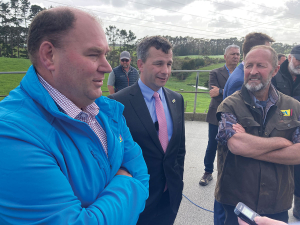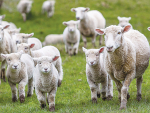Mr Kirby examined the animals and saw how serious the problem was... First he stopped the production line. Then he telephoned the local office of the State Veterinary Service. About an hour later, after inspection by two government vets, one of whom had experience of Foot and Mouth Disease (FMD) in Greece, there was no doubt. This was either swine vesicular disease or FMD.
Only laboratory work could tell which. This encounter, within sight of London’s eastern skyline, signalled the start of the FMD epidemic that spread across Britain. By the end of September over 2000 premises had been declared infected, millions of animals destroyed and many rural lives and livelihoods affected in a manner unknown for a generation.
That introduction to the report resulting from the UK Foot and Mouth Disease 2001: Lessons Learned Inquiry, should send shivers down the spine of all New Zealanders.
A Royal Society report into the same outbreak is similarly chilling reading. The 2030 cases saw 4.9 million sheep, 700,000 cattle and 400,000 pigs culled, a £3.1 billion loss to agriculture.
Some £2.5 billion was paid by Government in compensation. Impact on tourism and other rural industries took the estimated cost to the UK economy to £8 billion.
The ‘Lessons Learned’ report says “unusual circumstances” contributed to the scale of the UK outbreak, but reading it with the New Zealand livestock industry in mind, many of the circumstances deemed unusual seem all too possible: delayed detection of the initial outbreak; a cascade effect of stock movements in the interim; difficulty detecting the disease in sheep and their consequent vector role; windborne spread; logistical issues culling so many stock and effective carcase disposal; communication difficulties; conflicting interests of tourism, agriculture and other sectors; lack of personnel with experience of FMD; Government spokespeople playing down the problem and delayed decision making.
All this should be familiar stuff to those involved in MAF’s recent FMD outbreak simulation, Exercise Taurus, and it’s good MAF is running such simulations, albeit infrequently. But simulations will never come close to the sustained, week after week, pressure, stress and trauma a real-life, widespread outbreak would cause. We have to pray we never go there. And with renewed concerns about relaxed biosecurity standards being raised – not to mention a rampant FMD outbreak in Egypt – pray is an appropriate word.
















